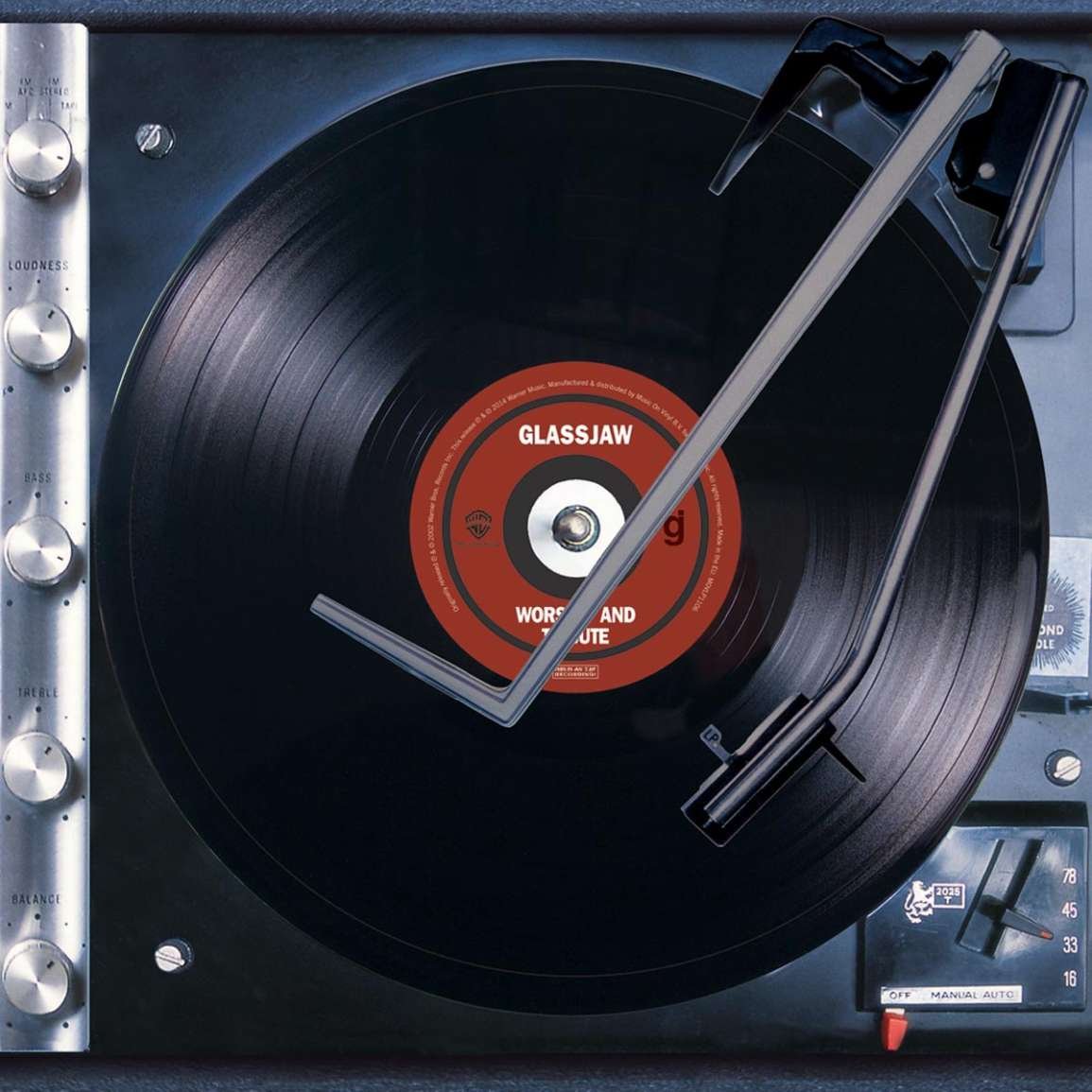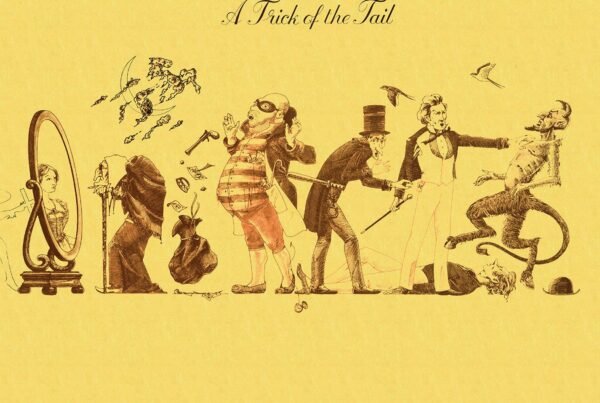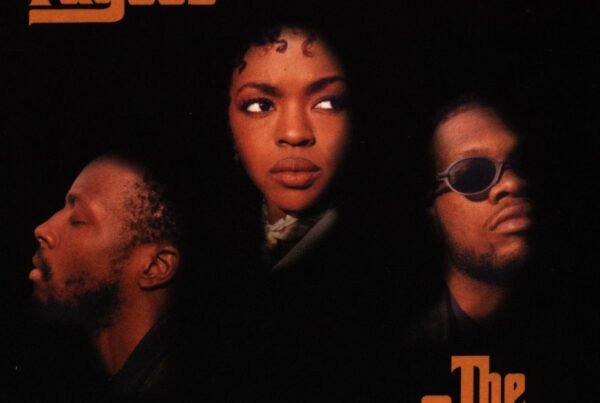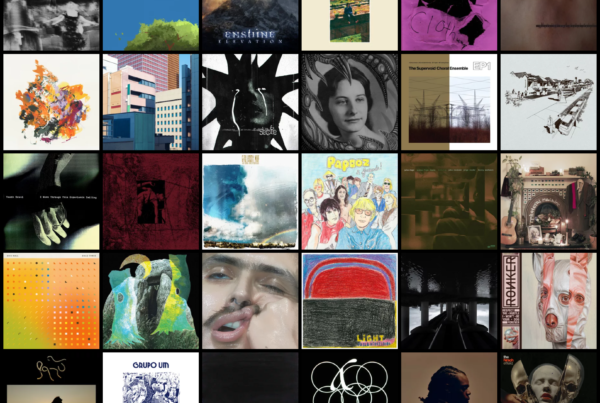Release date: July 9, 2002 | I Am / Warner Bros. | Instagram | Twitter
Among the select few bands that shaped the early ’00s post-hardcore scene, Glassjaw are a household name, releasing classics such as today’s subject, Worship and Tribute, that would carry the sound of the genre into a new milenium and towards a new audience.
Dom South
Glassjaw’s Worship and Tribute is a monumental album in the history of post-hardcore as a genre and came as part of a seismic shift in alternative and heavy music at the time. Produced by one of nu metal’s foremost soldiers in Ross Robinson, it marked the creative pinnacle of the post-hardcore and emo movement of the 2000s as nu metal fell by the wayside. Glassjaw have always stood above their peers, partly due to the varied vocal stylings of Daryl Palumbo’s but mostly due to an inexplicable style that often defies genre, sounding only like Glassjaw. Simply put, Worship and Tribute is up there with the greatest albums ever released.
Following their, to put it mildly, controversial and cathartic debut album on Roadrunner, Glassjaw were shopped around before ending up at Warner Bros. A marked difference from that debut, Worship and Tribute was built carefully until it became the truest statement of the band it could be. The catharsis of the debut can still be heard loud and clear, but the chaos is much more controlled. Palumbo’s vocals switch between his clear-cut crooning and the throat-shedding screaming. The tools on their workbench have been sharpened elsewhere too, the more brutal hardcore riffage has been largely exchanged for samurai sword sharpness between Justin Beck and Todd Weinstock as they duel around watertight rhythms. On this more balanced and evolved style Beck elapsed:
‘With Glassjaw, we’d have our heavy ones, our sultry ones, our middle of the road ones — and you start seeing this formula in the un-formula, which gave us this interesting opportunity to curate a balanced vibe in the end. We could tone it down for a moment and put these songs here and tuck those other ones away.’
Worship and Tribute then really found the balance to what the band had become. The raging parts of Glassjaw were still heavily apparent. On opener “Tip Your Bartender”, they begin with chugs panned to the opposing sides of the mix before flying into their more off the handle style. Palumbo’s vocals very much carry on the style of the first album and to add a bit of hardcore authenticity he lifts the classic lines ‘buy it, load it, shoot it’ from the legendary band Neglect (similar to his Bad Brains homage on “Piano”) in a straight edge call to arms. “Stuck Pig” is another heavy number, finding the band musically in touch with the early metalcore edge of Beck and Weinstock’s pre-Glassjaw band Sons Of Abraham as Palumbo’s chaotic vocals fly from wall to wall. Being honest, these tracks are the best representation of where the band were live in 2003 as they tore up the Warped Tour.
The sultry ones were a more notable part of their style which was largely unexplored on their debut, even though songs like “Piano” showed a softer side. Tracks including lead single “Ape Dos Mil” are largely stripped of any of the more familiar hardcore heaviness with very little in the way of riffs or heavier rhythms. Instead Palumbo’s vocals lead again with more contemplative and ambient duelling guitar melodies. “Must’ve Run All Day” similarly floats between chaotic entries to the album with much more tender vocals and thoughtful instrumentation. Poetic lyrics where the meaning is hard to read ring with lines such as ‘you’re lying in bed with the pride of a lion, if you’re shrewd enough to be underlined, then you are there’ yet the delivery makes them moving none the less.
While these were a much more vivid difference, what makes up most of the albums are the middle of the road ones. On songs like these, such as closer “Two Tabs of Mescaline”, Palumbo’s softer vocals take a lead but his louder shouts and rants take over at certain points around the chorus. Here he becomes a vocalist like no other shapeshifting across tones at will, leaving a trail of devastating emotions and catharsis behind him just like their debut even without the pure anger exhibited. The lyrics are fittingly poetic and ambiguous with the music more expansive. On tracks like “Cosmopolitan Blood Loss”, the verses and choruses show off their penchant for sudden dynamic switches with a loud-quiet structure taking over. “Radio Cambodia” is similarly atmospheric as Palumbo largely takes aim at the illogical nature of war and the strong religious foundation of the USA. Around the verses his quick, almost spoken vocals are another point of contrast to the chorus as his clean vocals again offer a glistening croon.
Worship and Tribute is a special album that spelled the end of the classic era of Glassjaw. Palumbo’s well-publicised health issues, the rotating cast of musicians outside of himself and Beck after Weinstock’s leaving and the 15-year gap between albums while Head Automatica looked set to take over the world were all obstacles in their way. Even so, after the tumultuous aftermath to Everything You Ever Wanted to Know About Silence we’re lucky to have even gotten this. We were deprived of the ending it truly deserved as the proper closer was always supposed to be the epic, final version of “Convectuoso” which only ever found its way onto the end of this album last year. With all of this, it’s a miracle we ever got to worship Glassjaw in the first place and even more incredible we’re here to tribute it over 20 years later.
Toni Meese
The year is 2005. My 14-year-old self is in the process of forming a musical identity – hardcore shows every weekend at my local venues, old-school death and black metal provided by my old school metal uncle. But in between, I was also checking out modern metal. And for a teenager immersed in the metal culture of the ’00s, most of the interesting stuff came from Roadrunner Records. Something that really struck my young headbanging heart was a project called Roadrunner United.
It was a project to celebrate the 25th anniversary of Roadrunner Records, and they hired a bunch of musicians from current and former Roadrunner bands to put some songs together. It was a great place to get exposed to new styles of metal, or get a new perspective on stuff I thought I didn’t like – I never cared for King Diamond or his stuff, but “In The Fire” is a banger. “The Rich Man” is still the best non-Slipknot song with Corey Taylor on vocals. I didn’t know Life Of Agony before, but “Tired’N Lonely” was the first time I heard Mina Caputo (technically Keith Caputo, since this album was made before she transitioned) and I immediately fell in love with her voice. “Army Of The Sun” became my favorite song on this album. Unfortunately, even Tim Williams’ voice wasn’t enough to make me like Vision Of Disorder (but I really liked their previous project Bloodsimple, which was much closer to the style Tim Williams had on “Army Of The Sun”).
Still, I found a lot of new stuff. The element that intrigued me the most was the voice I heard on “No Way Out”. A guy named Daryl Palumbo owned that song with his expressive, oddly phrased singing, with a timbre that reminded me strongly of Brock Lindow of 36 Crazyfists, a band I loved back in the day. Little did I know how much it would influence me when I checked out Daryl Palumbo’s main band – Glassjaw.
One of the first things I learned was that although the band discovered Palumbo through a Roadrunner project, they had a rough time with the label after releasing their Ross Robinson-produced debut, Everything You Ever Wanted to Know About Silence, on them. Most of Glassjaw‘s comments after parting ways with Roadrunner can be summed up as ‘the label is a joke‘. They found a new home at Warner and prepared to release the subject of today, A Scene In Retrospect – Worship and Tribute.
I’ve talked about how I got into Glassjaw, but what the fuck is Glassjaw in the first place? The 2000s were an interesting time for post-hardcore. The genre was already a way to fuse hardcore with tons of other styles of music – but until Worship and Tribute, no other band, maybe except Fugazi and Hüsker Dü, shaped, bent and twisted the genre as masterfully as Glassjaw. The band around vocalist Daryl Palumbo and guitarist Justin Beck took the ’90s post-hardcore sound and added alternative rock, jazz and mathcore to the mix.
The focus of Glassjaw‘s music was never to be different for the sake of being different. They cared more about writing good songs, incorporating their influences and musical heroes into their writing, and centered everything around Daryl Palumbo’s unique vocals – which you either love or hate. To this day, I remain firmly in the love camp. With all that, the zeitgeist, the vocals, the genre mix, Glassjaw created a unique, experimental, yet catchy sound, the vibe of which I only felt again when I discovered The Blood Brothers, albeit in a different container.
So what makes Worship and Tribute and the album worth revisiting with this esteemed feature? Is it the catchy tunes like “Ape Dos Mil”, whose chorus has been living in my head for almost 20 years? Is it the huge influence Glassjaw had and still has on post-hardcore, with many post-hardcore musicians claiming that the band’s original and still fresh sound makes them timeless? Or is it nostalgia, as many music lovers of my generation probably discovered the band as teenagers and quickly became an integral part of their own musical identity?
This question is for you to answer, because all of the above and more could be true. If you read this feature and feel the urge to go back to Glassjaw because you haven’t listened to them in years, we’ve done our job. If you want to check out Worship and Tribute, Glassjaw‘s magnum opus, for the first time, help yourself and give it a try. I’m sure you won’t regret it.






